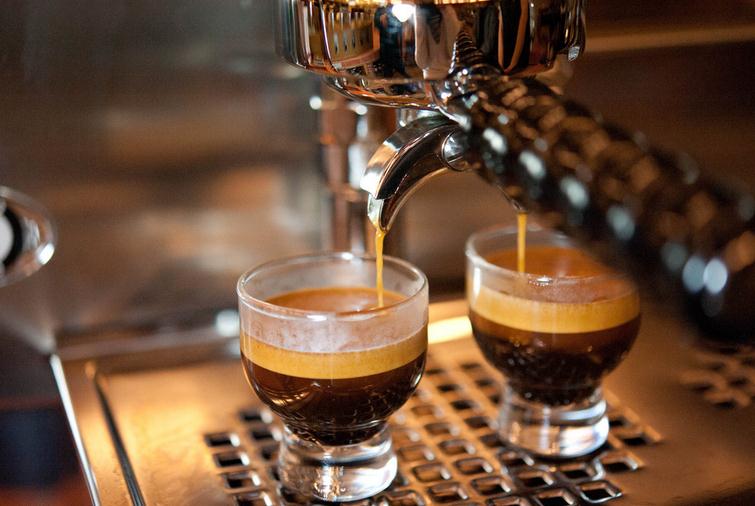Characteristics of Rwandan coffee beans Rwandan coffee tastes
Rwandans have been growing coffee since colonial times, but until 1999, the product was classified as below grade C and was not available on the global market. The reason for the poor quality is that farmers do not have a fixed procedure for cleaning coffee beans, and they do not process coffee fruits according to specifications in time. Buyers pay $0.33 a kilo for coffee beans, farmers subsist on meager profits from low prices, but remain poor.
Flavor: Overall impression of aroma, acidity, and alcohol.
Acidity: The strong acidity characteristic of all coffee grown in the plateau. The sour and spicy here is different from bitter and sour, and has nothing to do with pH value. It refers to a fresh and lively quality that promotes coffee to play a role in boosting the mind and cleansing the taste. The acidity of coffee is not acidic or sour in pH, nor is it acid that enters the stomach and makes people uncomfortable. When brewing coffee, acidity performance is very important, in good conditions and skills, can develop a refreshing acidity of the special taste, is a necessary condition for senior coffee. Acidity is a term used to describe a lively, bright flavor expression, somewhat similar to the way it is described in wine evaluation. If coffee beans lack acidity, they lose their vitality and taste empty and tasteless. Acidity has many different characteristics, such as coffee beans from Yemen and Kenya, the acidity characteristics have an aggressive fruity taste and a similar red wine texture.
Body: After drinking coffee, the tongue has a taste. Alcohol varies from light to watery to light, medium, high, fatty, and even syrupy Indonesian coffee.
Aroma: The aroma and aroma of coffee after blending. Words used to describe odors include caramel, charred, chocolate, fruity, grassy, malty, etc.
Bitterness: Bitterness is a basic taste, and the sensory area is distributed in the root of the tongue. The bitter taste of deep roasting is deliberately created, but the common cause of bitterness is too much coffee powder and too little water.
Bland: Coffee grown in lowlands and usually quite light and tasteless. Coffee with too little powder and too much water will also have the same light effect.
Briny: After brewing coffee, if it is overheated, it will produce a salty taste.
Earthy aroma: Usually used to describe spicy and earthy Indonesian coffee, not to refer to the taste of coffee beans stained with earth. Exotic: describes coffee with unique aroma and special flavor, such as flowers, fruits, spices like sweet characteristics. Coffee grown in East Africa and Indonesia usually has this characteristic.
Mellow: Used to describe coffee with a good balance of acidity.
Mild: Used to describe a coffee with a harmonious, delicate flavor, used to refer to all plateau coffee except Brazil.
Soft: describes coffee with low acidity like Indonesian coffee, also described as mellow or sweet.
Sour: A taste sensation primarily located on the back of the tongue that is characteristic of lightly roasted coffee.
Spicy: A flavor or smell reminiscent of a particular spice.
Strong: technically, describes the number of advantages and disadvantages of various tastes, or refers to the relative proportion of coffee and water in a particular conditioning product. In colloquial usage, it describes the intense flavor of dark roast coffee.
Sweet: It is essentially fruity and is also related to alcohol.
Wild: describes coffee with extreme taste characteristics.
Wine [Winy]: Fruity acidity and smooth alcohol, creating a special contrast flavor. Kenyan coffee is the best example of wine flavor. Another: coffee beans can only be roasted into coffee beans for grinding and drinking, generally divided into light, medium, deep and very deep roasting.

Important Notice :
前街咖啡 FrontStreet Coffee has moved to new addredd:
FrontStreet Coffee Address: 315,Donghua East Road,GuangZhou
Tel:020 38364473
- Prev

Kenyan coffee flavor Kenyan coffee characteristics Kenyan coffee taste
Kenyan coffee is aromatic, full-bodied and fruity, with a rich and perfect taste. Kenyan coffee has a wonderful fruit flavor, tastes like BlackBerry and grapefruit, and is a favorite of many coffee gluttons. This coffee has an excellent medium purity, crisp and refreshing taste. It has a fresh flavor and is most suitable for drinking iced coffee in summer. When tasting this coffee, such as
- Next

Colombian coffee flavor Colombian coffee characteristics Colombian coffee taste
Colombian coffee has a silky taste. Colombian coffee is equated with high quality and good taste. It is sweet in acid, low in bitterness, rich in nutrition, with a unique sour and mellow taste, and the sour, bitter and sweet flavors of Colombian super coffee match well. Unique fragrance, after drinking, the aroma fills the whole mouth. Put the aroma in the mouth
Related
- Detailed explanation of Jadeite planting Land in Panamanian Jadeite Manor introduction to the grading system of Jadeite competitive bidding, Red bid, Green bid and Rose Summer
- Story of Coffee planting in Brenka region of Costa Rica Stonehenge Manor anaerobic heavy honey treatment of flavor mouth
- What's on the barrel of Blue Mountain Coffee beans?
- Can American coffee also pull flowers? How to use hot American style to pull out a good-looking pattern?
- Can you make a cold extract with coffee beans? What is the right proportion for cold-extracted coffee formula?
- Indonesian PWN Gold Mandrine Coffee Origin Features Flavor How to Chong? Mandolin coffee is American.
- A brief introduction to the flavor characteristics of Brazilian yellow bourbon coffee beans
- What is the effect of different water quality on the flavor of cold-extracted coffee? What kind of water is best for brewing coffee?
- Why do you think of Rose Summer whenever you mention Panamanian coffee?
- Introduction to the characteristics of authentic blue mountain coffee bean producing areas? What is the CIB Coffee Authority in Jamaica?

